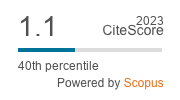Malaysian Journal of Mathematical Sciences, March 2016, Vol. 10(S)
Special Issue: The 10th IMT-GT International Conference on Mathematics, Statistics and its Applications 2014 (ICMSA 2014)
Local Exponents of Two-coloured Bi-cycles whose Lengths Differ by 1
Mardiningsih, Muhammad Fathoni, and Saib Suwilo
Corresponding Email: [email protected]
Received date: -
Accepted date: -
Abstract:
A two-coloured digraph $D^{(2)}$ is a digraph each of whose arc is coloured by red or blue. An ($h, k$)-walk in a two-coloured digraph is a walk of length ($h+k$) consisting of $h$ red arcs and $k$ blue arcs. A two-coloured digraph $D^{(2)}$ is primitive provided that for each pair of vertices $u$ and $v$ there exists an ($h, k$)-walk from $u$ to $v$. The inner local exponent of a vertex $v$ in $D^{(2)}$, denoted as expin($v, D^{(2)}$), is the smallest positive integer $h+k$ over all nonnegative integers $h$ and $k$ such that for each vertex $u$ in $D^{(2)}$ there is an ($h, k$)-walk from $u$ to $v$. We study the inner local exponent of primitive two-coloured digraphs consisting of exactly two cycles of length $s+1$ and $s$, respectively. Let $u_0$ be the vertex of indegree 2 in $D^{(2)}$. For each vertex $v$ in $D^{(2)}$, we show that expin($v, D^{(2)}$)=expin($u_{0}, D^{(2)}$)+$d(u_{0} ,v)$ where $d(u_{0} ,v)$ is the distance from $u_{0}$ to $v$.
Keywords: primitive digraph, two-coloured digraph, local exponent, bi-cycles









